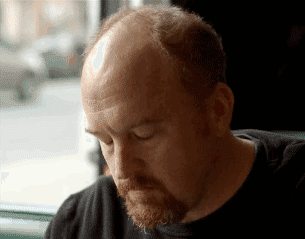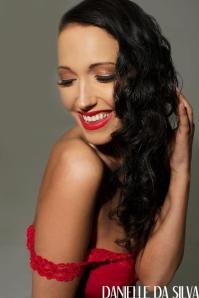- Nothing in my adult life prepared me for the steady onset of disability, but I’ve become an expert at handling new handicaps.
It was early autumn when I realized I’d lost the left half of my visual field. Not just the left periphery. Not my left eye either. Let me explain. The condition is called homonymous hemianopia, from the Latin hemi (“half”) and anopia (“blindness”).
The condition is so abstract it’s almost incomprehensible. If you Google the condition you might see pictures like these:

This is Paris as seen by someone with my condition: the left side is invisible. The artist’s rendering is, of course, misleading: the left side is white, and whiteness is something, white creates a defined line between what’s visible and what’s not. But there is no way to paint invisibility, no way to depict or describe it. If I want to see the left side of Paris, I’ll need to turn my head, again and again, and patch it together with my memory, like looking at a city through a magnifying glass, brick by brick, taking in only a tiny bit at a time. Things would be easier if I could see a white line that lets me know there’s something I’m not seeing, because there’s the rub: if I can’t see it, I don’t even know I’m missing it.
Sports: Nope.
Riding a Horse: No.
Video games: futile.
Driving: Never again.
Many people with this condition can’t leave their houses because they’re unable to detect danger on their left, like oncoming traffic.
Navigating my way through a familiar household – around chairs, tables, doorjambs, and so on – is an interesting venture when I can only see half of it. Walking itself isn’t difficult, but getting from A to B is. My left side is covered in bruises from collisions with everything from furniture to people.
So just to see if I could, I went for a run two nights after realizing I was half-blind.
I didn’t run far, but God, I ran. After half a mile I sat by a brook as the earth turned to conceal the sun and the sky lit up pink. The sight of it all soothed me. Look at everything I can still see.
And I found out that if the road is wide enough, if I’m careful, I can still run.
My eyes work just fine; they take in light, focus an image on my retinas, and that information travels to my brain. Just like anyone with healthy eyes.
Except as that information travels along visual pathways in my brain, the image is lost. My brain is constantly struggling to interpret data fed to it by my perfect, healthy eyes.
As fiercely as it tries, though, my brain can’t process that information.
My brain is Sisyphus forever rolling a boulder uphill only to watch it roll down again, and like Sisyphus, it can’t opt out of all its useless hard work; it will continue to try, and continue to fail, for the rest of my life.
I still celebrate that I can still see everything to my right. I can still take in the details of my loved ones’ faces if I’m patient. If I search, scanning, I can pick up the whole picture, and it may never be as clear as it used to be, but but some of the picture is still there. If, from a certain angle and distance, I can still see my mother smile, I haven’t lost anything that matters.
It was mid-autumn when I realized that the left half of my body had gone numb.
Two weeks later I found out the tumour has infiltrated my corpus colossum, “which explains the numbness,” said my oncologist.
The left half feels the way your body does when you fall asleep on it wrong, or when it gets far too cold. It aches or keens, too, and makes me think of the phantom pain reported by amputees.
I dropped down and did squats on my left leg. I did weights with my left arm. Not just to exercise the muscles, but to exercise the parts of my brain that control them.
This tumour pushes me, and I push back.
It’s presented me with handicap after handicap.
I have dealt with each one.
I finally looked up what the tumour’s infiltration of my corpus colossum might do to me. My heart dropped just a little when I saw I might lose my ability to read or understand words. (It’s called split brain syndrome. The details don’t matter.)
What matters is that I still have the ability to read and write right now.
I have no patience for thinking about what I might lose.
Maybe later I’ll go for a run.









